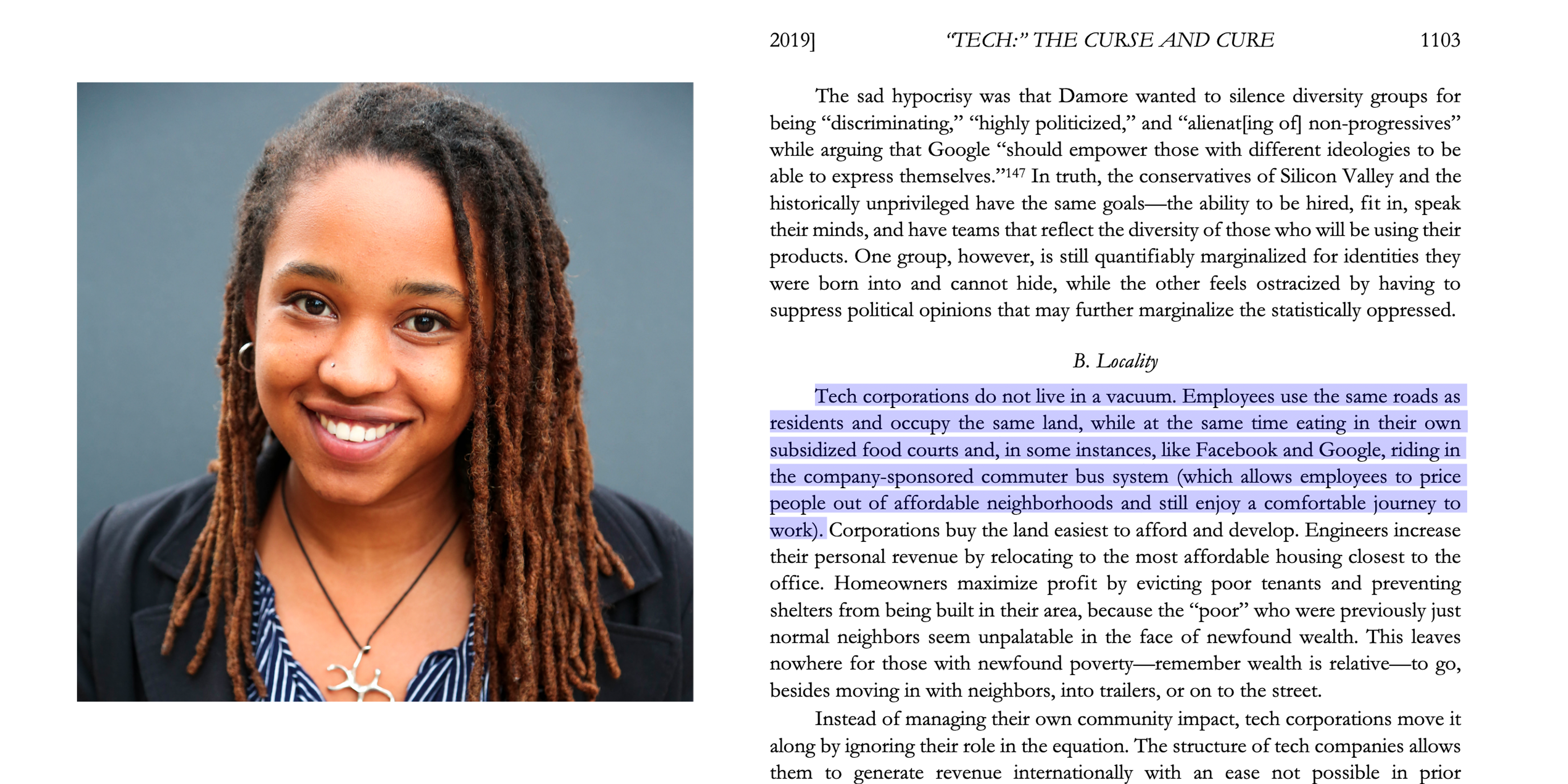
This girl geek earned multiple Stanford engineering degrees, worked in Silicon Valley, and then wrote her PhD thesis named “Tech:” The Curse and The Cure: Why and How Silicon Valley Should Support Economic Security.
Sage Isabella Cammers-Goodwin lays out the societal inequality of San Francisco’s Bay Area, and provides some suggestions for change:
We need a clear image of what valuable innovation looks like. Valuable innovation is work that goes toward raising the bottom standard of living and not increasing the distance between the bottom and top. Valuable innovation makes people self-actualize and does not take away from their productivity. Everyone stands to benefit from valuable innovation. Some persistent issues that would be valuable to fix include access to food, fresh water, healthcare, shelter, and education.
There are companies that work to improve the world and determine success primarily through the fulfillment of their users and nonprofit margins. Propel is a service that assists individuals with managing their food stamp balance. Handup allows people to donate directly to verified homeless individuals. Wikipedia, despite its unpopularity with academics due to a lower reliability than thoroughly fact-checked un-editable sources, offers a non-predatory social good. The belief that taxing tech corporations and breaking up monopolies hurts humanity by limiting innovation is a false rhetoric. Society does very little to encourage the kind of innovation that improves humanity by making the world a more livable, healthy, and equal place.
The true heroes of innovation are the creators of tools to assist those most in need and provide open-source frameworks so that anyone—including private firms—can learn from and build off of what they create.
The tech industry cannot be blamed for preexisting conditions. Many young entrepreneurs do not start as homeowners and did not create the systematic privileges that helped them succeed, whether that be affirmation that someone who looks like them is capable of success, having a family that could provide them an education, early access to computers, or an enthusiastic circle willing to invest in their success. Yet, they are still responsible for the systematic injustices they perpetuate and intensify.
The vast majority of U.S. born citizens, especially women and people of color, are not provided with the resources or encouragement to make earning over $100,000 per year coding seem reasonably achievable.
Ideally, the wealth of corporations would uplift local community and not just drive people out. Fortunately, there are a few legal structures in place to mitigate the negative influence corporations have on the communities they move into, one of which is called “impact fees.” The San Francisco Planning website explains, “The City imposes development impact fees on development projects in order to mitigate the impacts caused by new development on public services, infrastructure and facilities”—for example, improving public transport to counteract the added burden on the system.

Author of “Winners Take All” Anand Giridharadas agrees:
Philanthropy does not undo bad behavior. The range of tech philanthropy efforts — from “self-made” billionaires pledging to give away the majority of their wealth, to corporations promising to match employee donations, to those that give grants up to one percent of annual revenue, to corporations that do not find it within their mission to give at all — are insufficient.
This rhetoric is problematic because it distracts from the fact that automation, prior innovation, corporate bullying, and infrastructural advantages account for a large amount of tech wealth. It also frees corporations from needing to fix the problems they advance. Philanthropy is a positive corporate dogma, but is not sufficient to renegotiate the funds tech corporations owe to society.
A possible improvement could be taxing corporations on their employee-to-wealth ratio at increasing rates for corporation size. This tax structure could be applied internationally to lessen tax evasion loopholes. This money should be used for infrastructure that makes life affordable and for wealth redistribution to improve outcomes for everyone over time.
Read more of Sage I. Cammers-Goodwin’s writing at “Tech:” The Curse and The Cure: Why and How Silicon Valley Should Support Economic Security, 9 U.C. Irvine L. Rev. 1063 (2019).


